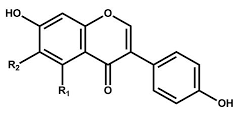HI! I’M ELEMENT AI.
Soy Flour

Product Description
Soy Flour is a versatile ingredient with various industrial applications.
Product:
Soy Flour
CAS:
68513-95-1
Synonym:
Soybean flour; Soy bean flour
Structure:

Typical Characteristics
Appearance
Cream colored powder
Density
0.40- 0.65 g/cm3 (bulk)
Melting point
Decomposes
Molecular Weight
Variable
Odor
Mild, nutty odor
Purity
99%
Uses, Applications & Markets
Key applications
get a quote



Soy Flour used in many
industry applications
Soy Flour is a versatile ingredient with various industrial applications. Here are some of its uses:
- Food Industry: Soy flour is widely used in the food industry as a protein-rich ingredient in bakery products, meat substitutes, and snack foods. It enhances the nutritional profile and improves texture and moisture retention.
- Animal Feed: It is used as a protein supplement in animal feed formulations, providing essential nutrients for livestock, poultry, and aquaculture.
- Adhesives: Soy flour is used in the production of bio-based adhesives for plywood, particleboard, and other wood products, offering an environmentally friendly alternative to synthetic adhesives.
- Plastics and Polymers: It is used in the manufacturing of biodegradable plastics and composites, contributing to sustainable and eco-friendly materials.
- Textile Industry: Soy flour is used as a sizing agent in textile processing, helping to improve the strength and smoothness of fibers during weaving.
- Paper Industry: It is used as a binder and coating agent in the paper industry to enhance the strength, printability, and finish of paper products.
- Cosmetics: Soy flour is used in cosmetic formulations, such as skin care products and hair treatments, for its moisturizing and conditioning properties.
- Bioplastics: It is used in the production of bioplastics as a renewable and biodegradable alternative to conventional plastics.
- Pharmaceuticals: Soy flour is used as an excipient in pharmaceutical formulations, providing a protein source and aiding in the delivery of active ingredients.
- Fermentation Industry: It is used as a nutrient source in fermentation processes for the production of enzymes, antibiotics, and other biochemicals.